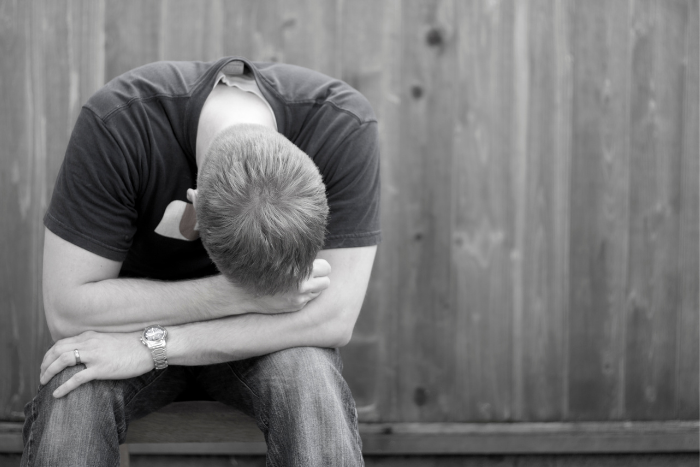As a Divorce Coach for Men, I have had numerous clients over the years who were victims of Domestic Violence. Society has convinced us that men must be “strong,” therefore, being a victim of abuse makes them appear weak. This could not be farther from the truth! Ending a relationship is rarely easy, especially an abusive one. It becomes even harder if you have been threatened, manipulated, controlled, physically assaulted, and emotionally beaten down.
Often when discussing with my clients why they have not left the relationship, there seems to be a common theme among them.
Many men tend to feel that they must stay in the relationship because:
- They feel ashamed. Many men feel great shame that they have been abused, been unable to stand up for themselves, or somehow failed in their role as a male, husband, or father.
- Their religious beliefs dictate that you stay. Or your self-worth is so low that you feel this abusive relationship is all you deserve.
- There’s a lack of resources. Many men worry they will have difficulty being believed by the authorities, or that their abuse will be minimized because they’re male or find there are few resources to specifically help abused men.
- Being in denial. Just as with female domestic violence victims, denying that there is a problem in your relationship will only prolong the abuse. You may still love your partner when they’re not being abusive and believe they will change or that you can help them. But change can only happen once your abuser takes full responsibility for their behavior and seeks professional treatment.
- They want to protect their children. You worry that if you leave, your spouse will prevent you from having access to them. Obtaining custody of children is always challenging for fathers, but even if you are confident that you can do so, you may still feel overwhelmed at the prospect of raising them alone.
Protecting yourself as an abused male
Domestic violence and abuse can have a serious physical and psychological impact. The first step to protecting yourself and stopping the abuse is to reach out. Talk to a friend, family member, or someone else you trust, or call a domestic violence helpline.
Admitting the problem and seeking help doesn’t mean you have failed as a man or as a husband. You are not to blame, and you are not weak. As well as offering a sense of relief and providing some much-needed support, sharing details of your abuse can also be the first step in building a case against your abuser.
When dealing with your abusive partner:
- Leave if possible. Be aware of any signs that may trigger a violent response from your partner and be ready to leave quickly. If you need to stay to protect your children, call emergency services. The police have an obligation to protect you, just as they do for a female victim.
- Never retaliate! An abusive partner may try to provoke you into retaliating or using force to escape the situation. If you do retaliate, you’re putting yourself at risk of being arrested or removed from your home.
- Get evidence of the abuse. Report all incidents to the police and get a copy of each police report. Keep a journal of all abuse with a clear record of dates, times, and any witnesses. Include a photographic record of your injuries and make sure your doctor or hospital also documents your injuries. Remember, medical personnel are not likely to ask if a man is a victim of domestic violence, so it’s up to you to ensure that the cause of your injuries is documented.
- Keep a mobile phone, evidence of the abuse, and other important documents close at hand. If you must leave instantly to escape the abuse, you’ll need to take with you evidence of the abuse and important documents, such as a passport and driver’s license. It may be safer to keep these items outside of the home. I highly recommend having a safe deposit box for your evidence.
- Obtain advice from a domestic violence program or legal aid resource about getting a restraining order or order of protection against your partner and, if necessary, seeking temporary custody of your children.
Remember, men are victims of domestic violence more often than you may think. As an experienced divorce coach specializing in working with men, I have many years of experience in helping men get through this. If you are currently in an abusive relationship, you do not have to go through this alone.
Hayley Botha
Emerge Strong Divorce Coaching For Men

